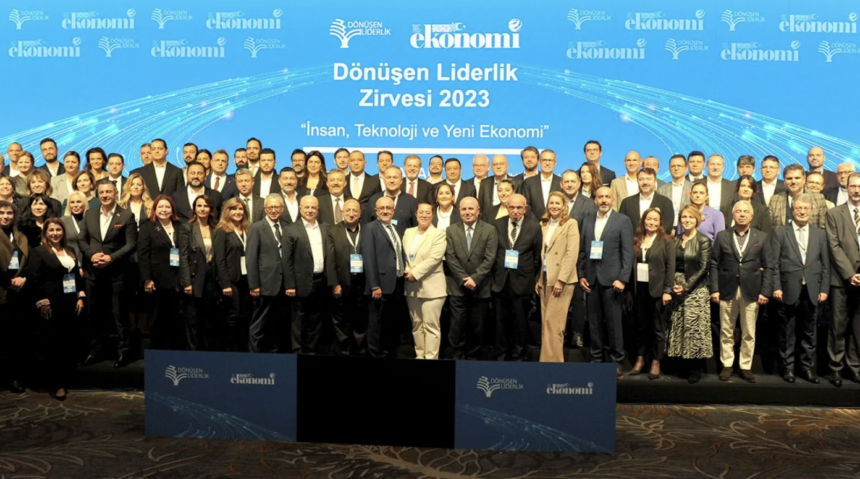At the Transforming Leadership Summit 2023 organized by EKONOMI daily and PricewaterhouseCoopers (PwC), the results of the most comprehensive report on outward investments from Turkey were announced. According to PwC’s Overseas Investments Survey, the amount of direct investment abroad reached an average of 4.7 billion dollars in 2021 and 2022. While the highest amount of investment came from the mining sector, the most preferred country was the Netherlands. Participants considered market size and growth rate, as well as political and economic stability in the region regarding their investments.
The Transforming Leadership Summit, organized for the 2nd time this year in partnership with EKONOMI daily and PwC, took place at Elite World Grand Sapanca Hotel between November 23-25. A series of panels were organized with the main agenda of “People, technology and new economy” at the summit, which was attended by the CEOs and chairmen of the board of directors of Turkey’s leading companies and opinion leaders.
First detailed study on overseas investments
The report, which examines the motivations and challenges behind the accelerating overseas investments of Turkish companies in recent years, draws attention as the first detailed study prepared in Turkey in this field. According to the report, while overseas investments have changed over the years, the increase in recent years stands out. According to the CBRT’s Balance of Payments data, the amount of direct investments made by real persons and legal entities residing in Turkey between 2013 and 2022 averaged USD 3 billion per year.
It is observed that the amount of overseas investments increased rapidly from the beginning of the 2000s until 2008 and then started to decline due to the global economic crisis in 2008. According to the data, the amount of direct investment abroad reached its highest annual level with USD 5 billion in 2014-2015. Yıldız Holding’s acquisition of United Biscuits, the world’s sixth largest biscuit producer, for 3 billion dollars had a significant impact on the remarkable increase. Direct investments abroad by Turkish residents, which averaged USD 3.3 billion annually between 2016 and 2020, reached USD 4.7 billion in 2021 and 2022.
According to the report, among the reasons for this increase, factors such as investors’ desire to diversify and strengthen their supply chains and production regions after the pandemic, their aim to manage foreign exchange risk by operating in stable markets, and their desire to increase their income come to the fore.
Mining has the lion’s share in overseas investments
A sectoral analysis of the foreign investments of real and legal persons resident in Turkey reveals that the mining and quarrying sectors stand out. It is observed that the mining and quarrying sector has a share of 25 percent among all sectors with an investment of USD 16 billion between 2002 and 2023. This sector is followed by the manufacturing sector with an investment of USD 14 billion and a share of 22 percent. The ‘finance and insurance sector with a share of 19 percent and a capital position of 12 billion dollars, the real estate sector with a share of 9 percent and a capital position of 5 billion dollars, and the construction sector with a share of 4 percent and a capital position of 2 billion dollars also constitute an important part of the total investments.
Main destination is the Netherlands
The report also analyzes investments abroad regionally. Accordingly, EU countries rank first with a share of 62 percent, while Asia ranks second with a share of 17 percent. These regions are followed by USA with a share of 10 percent and Africa with 1 percent. When analyzed in terms of the countries where investments are made, it is seen that the Netherlands has a significant share in all overseas investments with a share of 29 percent. The Netherlands is followed by the USA with 16 percent, Germany with 10 percent and the UK with 6 percent.
The majority of respondents consider market size and growth rate, as well as political and economic stability in the region as the first priority in their overseas investments. Higher profitability potential and competitive conditions also stand out as ‘must-have stability factors’. Human resources are not among the top 5 factors affecting overseas investment decisions. The fact that factors such as ease of taxation, access to financing and regulations, which may affect investments in the long term, are ranked last indicates that respondents prioritize the stability and growth potential of investment regions. The motivation of the respondents who consider the development potential and current stability of the region in their decisions to invest abroad also varies.
Depreciation in TRY was also effective
Participants emphasize the importance of the motivation to access the market. Besides the motivation to generate foreign currency-based income also stands out while deciding overseas investments. This is a preference for risk management as a result of the significant depreciation of the Turkish Lira in recent years. Physical proximity to customers also stands out as a source of motivation. Incentives, access to financing and ease of taxation are not among the leading motivators.










